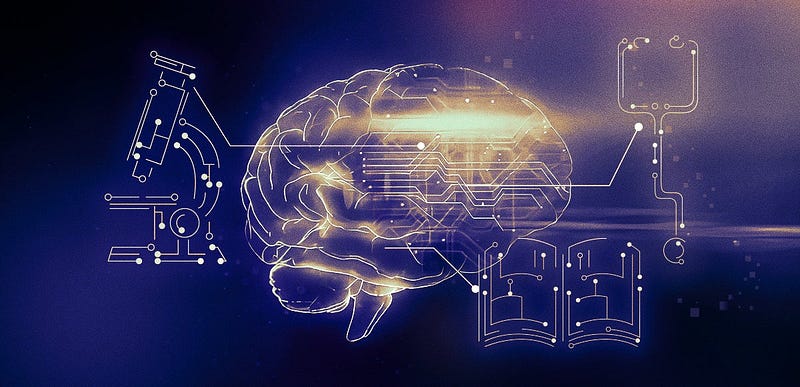
Introduction
Artificial Intelligence (AI) has been a transformative force across a wide spectrum of industries, but perhaps nowhere is its impact more profoundly felt than in the field of medicine. One of the most notable developments in this area is the groundbreaking PMC LLAMA model, an AI-based system that has been fine-tuned to set new performance records. This article delves into the role of AI in revolutionizing medicine, with a specific focus on the PMC LLAMA model.
The Emergence of AI in Medicine
Evolution of AI in Healthcare
Artificial Intelligence has made significant inroads in healthcare over the past few decades. Initially employed to handle administrative tasks such as scheduling and patient records management, AI has since evolved to play a vital role in clinical decision-making, patient care, medical research, and much more.
The rise of AI in healthcare is driven by several factors, including an increase in the volume of healthcare data, advancements in machine learning algorithms, and the development of computational hardware capable of processing large amounts of data.
Implications of AI in Medicine
AI’s introduction into medicine has led to the emergence of more precise, personalized, and predictive healthcare. For instance, machine learning algorithms can analyze vast amounts of patient data to identify patterns that humans might miss, enabling earlier detection of diseases. Furthermore, AI can assist in treatment planning, monitor patient vitals, and even predict patient outcomes, thereby improving overall patient care.
PMC LLAMA Model: An AI Marvel in Medicine
The Genesis of PMC LLAMA
In the AI healthcare revolution, one model stands out — the PubMed Central Large-scale Applied Model for Abstracts (PMC LLAMA). A cutting-edge AI model, PMC LLAMA has been meticulously fine-tuned to process and analyze medical texts, enabling it to offer unprecedented performance in medical information retrieval and processing.
The PMC LLAMA model was trained on PubMed Central’s open-access subset, which contains millions of biomedical and clinical research articles. This extensive training enables the model to understand and generate human-like responses in a medical context, making it a potent tool in healthcare.
Fine-tuning and Performance Records
What sets PMC LLAMA apart is its performance. The model has undergone extensive fine-tuning, enhancing its precision and contextual understanding. As a result, it has set new performance records in several medical NLP (Natural Language Processing) tasks.
PMC LLAMA’s fine-tuning process focused on enhancing its understanding of medical language, its ability to retrieve medical information accurately, and its proficiency in generating meaningful and contextually appropriate responses. The outcome is a model that provides accurate and reliable medical information, making it an invaluable asset in healthcare.
PMC LLAMA in Action: Practical Applications
Clinical Decision Support
One of the primary applications of the PMC LLAMA model is in clinical decision support. The model can analyze a patient’s symptoms, medical history, and diagnostic results, and suggest potential diagnoses or treatment options. This information can assist healthcare professionals in making informed decisions about patient care.
Medical Research
PMC LLAMA is also making waves in medical research. Researchers can use the model to review vast amounts of scientific literature rapidly and accurately. It can identify relevant studies, extract key findings, and even summarize the information, thereby streamlining the research process.
Personalized Medicine
The PMC LLAMA model’s ability to analyze individual patient data and generate personalized insights makes it a powerful tool in personalized medicine. The model can suggest customized treatment plans based on a patient’s unique medical profile, enhancing treatment efficacy and patient outcomes.
Future Outlook: The Promise of AI in Medicine
As exemplified by the PMC LLAMA model, AI holds immense potential in revolutionizing medicine. The ability of AI models to process vast amounts of data, identify patterns, and generate human-like responses can greatly enhance healthcare delivery, medical research, and patient outcomes.
While we are just beginning to scratch the surface of AI’s potential in healthcare, the future holds exciting possibilities. As models like PMC LLAMA continue to evolve and improve, we can expect a healthcare landscape that is more efficient, effective, and patient-centric.
In conclusion, the PMC LLAMA model represents the pinnacle of AI’s potential in healthcare. As we move forward, this groundbreaking AI model promises to continue pushing the boundaries of what is possible in medicine, setting new performance records and transforming the way we approach healthcare.
Find more … …
LLaMa: Facebook’s AI Prowess Challenges ChatGPT - A Comprehensive Examination of the AI Landscape
Unraveling the Popularity of Machine Learning: Its Growth, Applications, and Future Prospects
Python Example – Write a Python program to get the current date time information.